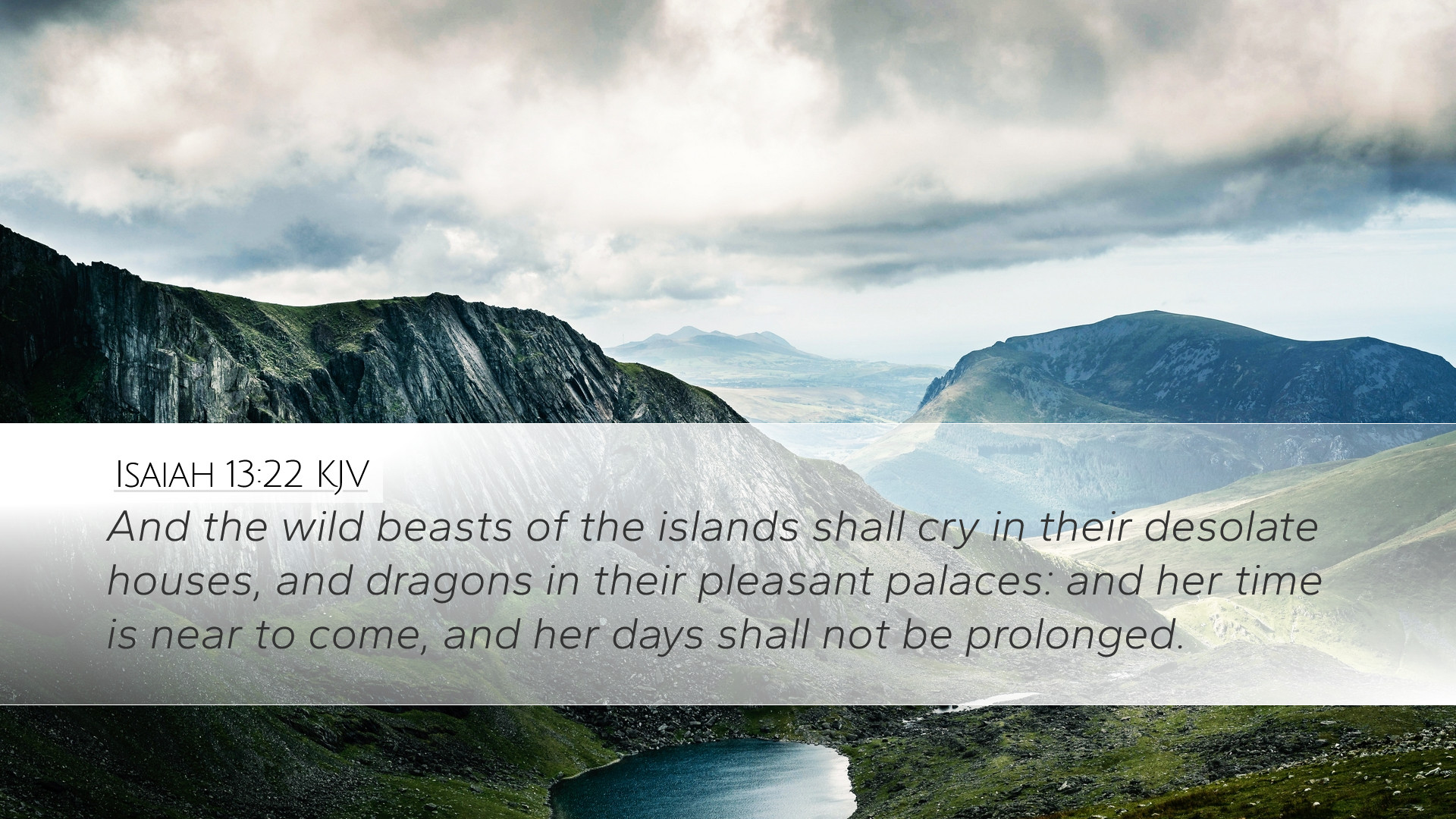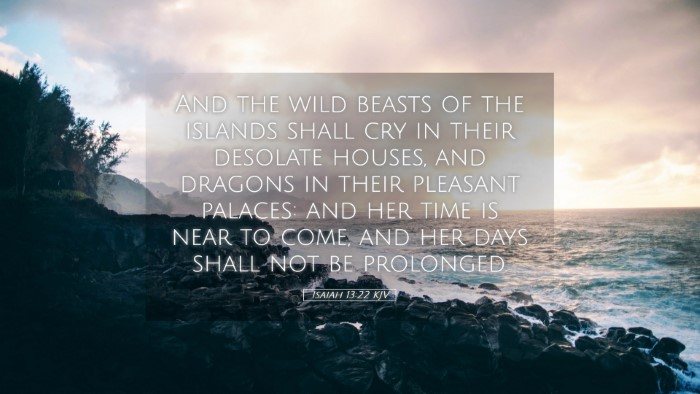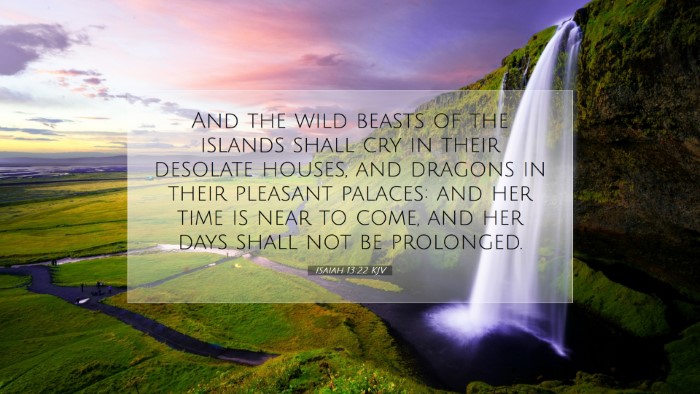Commentary on Isaiah 13:22
Isaiah 13:22 states, "And the wild beasts of the island shall cry in their desolate houses, and dragons in their pleasant palaces: and her time is near to come, and her days shall not be prolonged." This verse serves as a prophetic declaration regarding the impending judgment and desolation of Babylon, reflecting the themes of divine retribution and the inevitable consequences of national sin.
Overview
The context of Isaiah 13 is a prophetic announcement concerning the doom of Babylon, which serves as both a historical reference and a typological representation of pride, idolatry, and opposition to God’s people. The vivid imagery of desolation is effective in communicating the severity of divine judgment.
Exegesis and Analysis
This verse uses stark imagery to convey the idea of utter desolation. The mention of "wild beasts" and "dragons" signifies that what was once a thriving and prosperous city will be left empty and forsaken, consumed by nature in the absence of human presence.
Wild Beasts and Dragons
Matthew Henry notes the significance of the wild beasts inhabiting the desolate city, highlighting that once lively cities, filled with human activity and pomp, will succumb to the chaos of nature. He emphasizes that the creatures find ‘homes’ in what were once ‘pleasant palaces’, pointing to the complete reversal of fortune.
Albert Barnes reinforces this interpretation, claiming that the presence of these animals implies total abandonment. Babylon, a symbol of human pride, will ultimately show that without God’s favor, even the mightiest of cities will crumble to nothingness. The ‘dragons’ here are thought to symbolize creatures of desolation and devastation, suggesting that the wildness of nature will reclaim the lands once dominated by humanity.
Time of Judgment
The latter part of the verse, "and her time is near to come, and her days shall not be prolonged," serves as a crucial reminder of the timing of God's judgment. Adam Clarke expounds on this notion by clarifying the inevitability of the prophesied events. He emphasizes that the time of judgment is fixed by divine decree; there is no extension or procrastination in God's justice.
Theological Implications
This verse, while historically applicable to Babylon, also illustrates a theological principle relevant to all nations and individuals. The overarching theme is that rebellion against God leads to eventual downfall. The fate of Babylon reflects the broader principle that nations that exalt themselves against God will face inevitable judgment.
Symbolism of the Desolate City
The desolation of Babylon becomes emblematic of spiritual desolation in nations that forsake God. As Barnes states, the imagery serves as a cautionary tale, reflecting the consequences that arise when a nation engages in prideful opposition to divine rule. Such nations are warned that their glory is temporary and subject to divine oversight.
Lessons for Believers
The prophetic message in Isaiah 13:22 serves several lessons for contemporary believers:
- The Importance of Humility: Nations and individuals alike are called to humility, recognizing divine sovereignty.
- Awareness of Consequence: Just as Babylon faced judgment, individuals and societies must reckon with the spiritual consequences of their moral choices.
- Hope in Preservation: Despite the judgment pronounced in this passage, there lies hope for those who remain faithful to God amidst societal decay.
Conclusion
In summary, Isaiah 13:22 offers a somber yet important reminder of the realities of divine judgment through the prophetic symbolism of desolation. The insights from public domain commentaries by Matthew Henry, Albert Barnes, and Adam Clarke illuminate the gravity of the text, showing that the principles laid out within it extend beyond the historical context of Babylon to serve as timeless warnings and insights for contemporary society.


